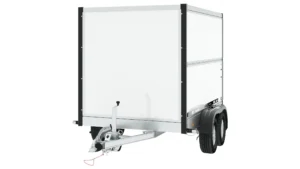The Future of All-Terrain Forklifts in Industrial Logistics
2025-07-10 03:45:30
All-terrain forklifts have revolutionized material handling in construction, agriculture, and mining sectors. Unlike conventional forklifts, these machines are engineered with reinforced tires, higher ground clearance, and advanced suspension systems to navigate uneven surfaces. According to industry data, the global market for all-terrain forklifts is projected to grow at a CAGR of 6.8% from 2023 to 2030, driven by infrastructure development in emerging economies.
One of the key innovations in all-terrain forklifts is their hybrid and electric powertrain options. Leading manufacturers like Toyota and JCB have introduced models with lithium-ion batteries, reducing emissions while maintaining high torque for off-road operations. A 2022 study by Logistics Tech Insights revealed that electric all-terrain forklifts can reduce operational costs by up to 30% compared to diesel counterparts, making them a sustainable choice for eco-conscious enterprises.
The durability of all-terrain forklifts is another critical factor. These machines are built with reinforced steel frames and corrosion-resistant coatings to withstand harsh environments. For instance, in the oil and gas sector, all-terrain forklifts are frequently exposed to abrasive materials and extreme weather, yet their failure rates remain below 5%, as per a 2023 report from Industrial Equipment Analytics.
Operational versatility sets all-terrain forklifts apart. With adjustable lift heights and multi-functional attachments, they can handle pallets, pipes, and even bulk materials like gravel. A case study from a Brazilian mining company showed that deploying all-terrain forklifts reduced loading times by 22%, significantly improving productivity in remote sites.
Looking ahead, automation and AI integration are poised to redefine all-terrain forklift capabilities. Companies like Caterpillar are testing autonomous models equipped with LiDAR and GPS for precision navigation in unstructured terrains. Industry experts predict that by 2025, 15% of all-terrain forklifts will feature some level of automation, further enhancing safety and efficiency in logistics operations.








